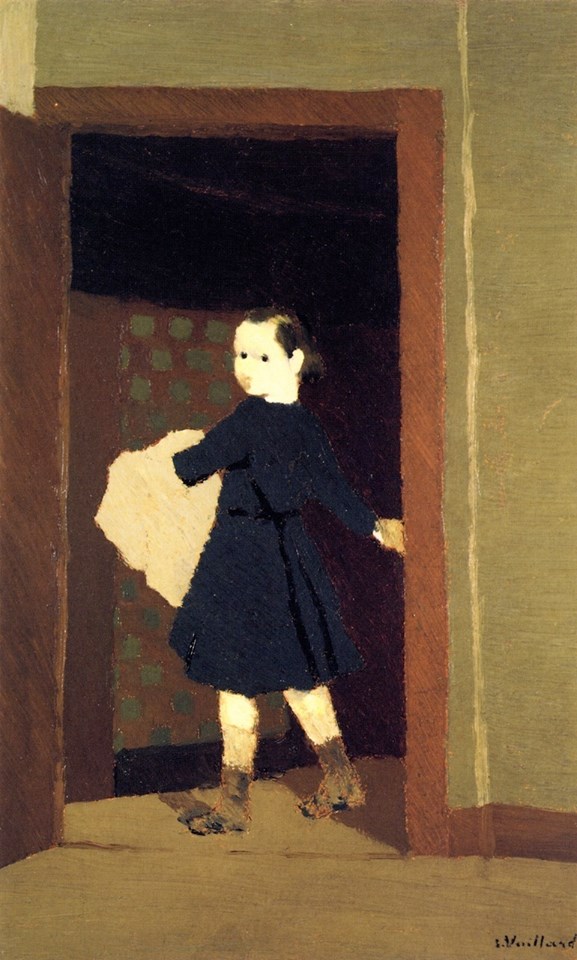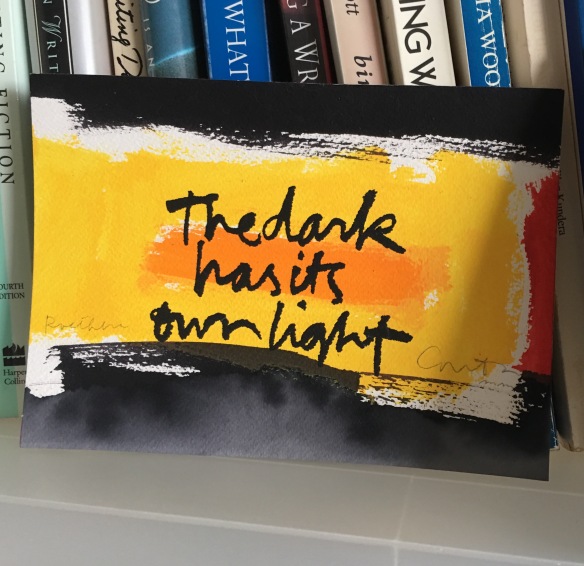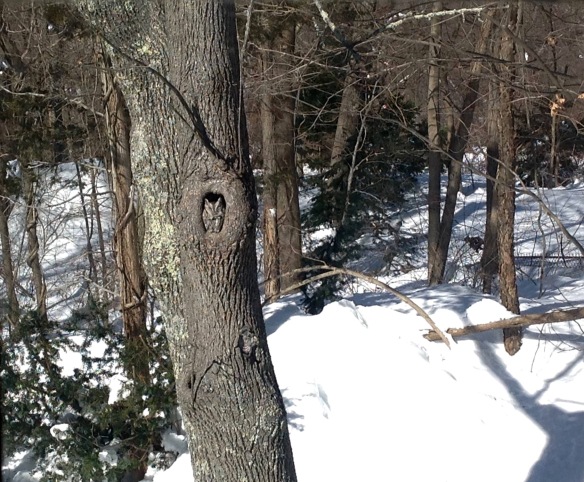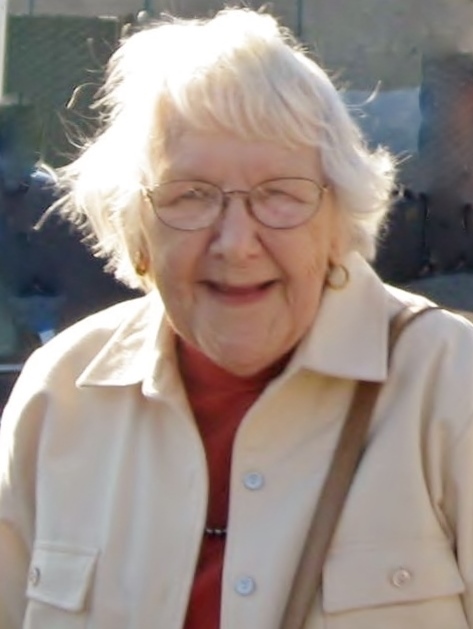
Vuillard– Child at the Door, Yale University Art Gallery
I listened to her message;
the social worker’s voice
–always calm, friendly, familiar–
now imbued
with anxious insistence
Please call
ASAP
Your mother is fine but
We need to speak with you today!
I knew my mother wasn’t fine
but I didn’t expect the latest twist:
Hallie, I have upsetting news–
your mother is screaming
night and day.
She is disrupting the other residents. No one can rest. They need their sleep so they can get better!
We have no choice, Hallie—
we need to move her—
TODAY!
My warrior mother was back.
But they were moving her–
and I knew
this call
was the beginning of the end.
From the day she entered the nursing home,
my mother had lived in the same bright, cheery room
right by the front door.
For more than a decade, she waved to visitors and watched the activity–
with her prime vantage point,
she even thought she was a member of the staff–
but I haven’t seen a paycheck yet!
And now she was losing her post.
We are moving her to a different wing where her screaming won’t bother the other patients.
I don’t understand. It won’t bother them? Won’t she still upset people?
They won’t notice. They are too sick to notice.
I’m confused. They are too sick to notice a screaming woman? What am I missing?
I’m sorry, Hallie; but this is not up to you;
We are not asking you;
We are telling you.
Until that moment,
I had done everything I could
to avert a move from her room.
I knew
for dementia patients,
routine is paramount–
every day; every thing;
exactly the same.
And I knew my mother;
right or wrong,
I believed
a move would kill her.
For more than a year,
the prospect of a move loomed over us
for one simple reason–
my mother was running out of money.
I had paid the nursing home bills from her savings, then a small inheritance, and finally from the sale of her house.
At first, I didn’t worry;
I thought the proceeds from our family home would sustain her for the rest of her life.
And it did—for close to a decade.
But as the balance steadily declined;
I grew uneasy.
I stopped opening bank statements. I knew what they said.
And what they didn’t say.
Where will we get the money?
The obvious answer; we wouldn’t. We would spend her assets; apply for state assistance. Some people call it welfare. In California, it’s called Medi-Cal.
But Medi-Cal would not pay for her bright, cheery room; she would be moved to another location on the premises—
her routines–
her modest little corner of the world–
gone.
I had already taken away her beloved home. I could not do it again.
My solution:
I paid the bills
from my savings;
negotiating with myself
over and over and over again;
what is fair–
how much is enough–
her welfare vs.
my future.
Night after sleepless night
I battled my conscience–
If she moves to get Medi-Cal
and doesn’t survive
Tossing
I could not bear it
Turning
she paid for my education–
bought my first car–
Tossing
if I move her
Turning
and she dies
Tossing
I’ll look into Medi-Cal…
Turning
NEXT year!
But I can’t
Tossing
move her
Turning
now–
Tossing
not
NOW…
Hallie,
we are moving your mother;
we are not asking you;
we are telling you.
And Hallie,
her new room is Medi-Cal eligible;
I am sending the forms.
Please Hallie,
you’ve done enough.
It’s time to fill out the forms.
We will help you any way we can.
Now hold on, the charge nurse needs to talk to you…
When are you coming?
In a few weeks–right after jury duty.
Good. You need to come.
Is—it—imminent?
No, but your mom has entered the last downward spiral. That’s why she’s screaming.She has entered the last phase. Then she will go into the quiet period.
The quiet period?
Haven’t we had the quiet period?!
No. In the quiet period, she will lose everything—
eating, speech,
everything.
How long will this quiet period last?
Well, your mother is very healthy. It could be two to three years.
(Oh, please God, no!)
I have my plane ticket.
Good.
It’s a bittersweet irony;
despite sleepless nights,
willful determination and sacrifice
to keep her in her room;
at the end
money had nothing to do with it.
Her disease had taken her to a place
where no bright, cheery room could camouflage the horror in her brain.
We were descending down the spiral of disease—
entering the years of quiet hell.
They had no choice;
they moved her.
But still
I was not ready;
those Medi-Cal papers became
another envelope I could not open.
A few weeks later
I finally studied the forms.
We were allowed to spend her remaining money on certain essentials;
a burial plot, for example.
We would be allowed to keep a small amount in the bank;
And I would need to find her original Medicare card (copies not accepted).
(Wow, the original card… I know I’ve seen it somewhere…).
The next day
the phone rang.
The caller ID
nursing home.
For years, I had eyed those words with trepidation. But they had called so many times during the last few weeks
I did not hesitate as I lifted the receiver.
And then I heard her voice.
It was not the social worker. It was not the charge nurse.
It was the new head nurse;
the new head nurse
who had never once called.
And in that moment
I knew;
my warrior mother was dead
(oh please God…).
Minutes later,
the phone rang again:
the charge nurse–
Oh Hallie! We always get a text when someone dies. I almost fainted when I saw the message. My husband had to hold me up. Your mother! I can’t believe it! I saw her– just a few hours ago–she was the last person I saw before I left. I know what I told you…I believed what I said…I am so deeply sorry…
It was my turn to be the rational one.
It’s alright. I know you did everything you could. It’s time.
And here’s the catch:
I believe it.
Looking back, I realize,
I spent a decade
trying to orchestrate the impossible.
I was tormented about her care; a move; no money;
And in my shattered vision
I lost sight of the most basic tenet of this vicious disease;
I could control nothing.
Dementia had eviscerated my mother;
it promised only bitter years of quiet hell
with no more sweet moments to assuage me.
And even the most compassionate, experienced professional could not anticipate its path nor ease our fall.
Only three weeks after the move,
the phone rang;
my worst fear;
my urgent prayer;
my mama–
a warrior to the end.
Alleluia.

Vuillard, The Artist’s Mother– Minneapolis Institute of Arts
The title Bittersweet Symphony comes of course from the song of the same name by the Verve. I leave it to you to research the lyrics and determine if they apply…






















